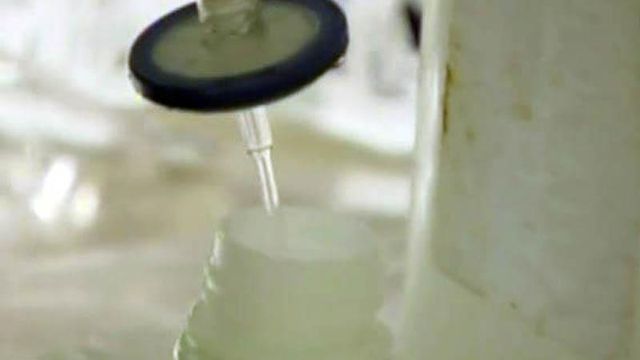Water quality near Sanford tested before 'fracking' starts
Water-quality experts are testing people's wells in Lee County to create a baseline that will help state regulators measure the environmental impact of natural gas drilling.
Posted — UpdatedTeams from the U.S. Geological Survey's Water Science Center are fanning out across the county to assess the best places to test the groundwater. About 150 area homeowners have asked the USGS to test their wells, but officials said locations will be chosen based on scientific criteria.
"We haven't sampled in this area since the 1960s, 1970s," Melinda Chapman, a USGS groundwater specialist, said Wednesday.
State lawmakers are expected to consider legislation when they reconvene later this month that would allow gas drilling as quickly as 2014.
Environmental groups have expressed concern about the controversial drilling method of hydraulic fracturing, saying that they fear it could contaminate water sources in central North Carolina.
The process, also known as "fracking," involves horizontal drilling into underground deposits of shale and then pumping a high-pressure mix of water and chemicals into a well to break apart the rock and release natural gas.
A WRAL News crew visited Pennsylvania last fall to examine fracking, and residents said the gas boom provides an economic boost but also has brought environmental worries like high methane levels in drinking water.
Rob Jackson, an environmental sciences professor at Duke University, has studied fracking in Pennsylvania.
"Much of the controversy has been over, you know, whether problems in people's water occurred before the drilling started," Jackson said. "That's a question that, for many houses, they just can't answer because they hadn't had their wells tested."
The Lee County study is among the first of its kind, officials said.
"We can get an assessment of the before-water-condition," said Holly Weyers, director of the USGS Water Science Center, "so that, in the event they come and hydro-frack, we can then come back and take samples and assess if there is any impact afterwards."
Jim Shearin said the study is important for area homeowners like him.
"The most important thing is you have absolute proof of the difference (fracking) does make," said Shearin, who said he has refused several offers to sell the rights to drill for gas on his property.
Jackson said the study could also protect drilling companies against lawsuits from people whose water quality was bad to begin with.
The state Department of Environment and Natural Resources has said that fracking can be done safely in North Carolina if regulations are put in place first.
• Credits
Copyright 2024 by Capitol Broadcasting Company. All rights reserved. This material may not be published, broadcast, rewritten or redistributed.





